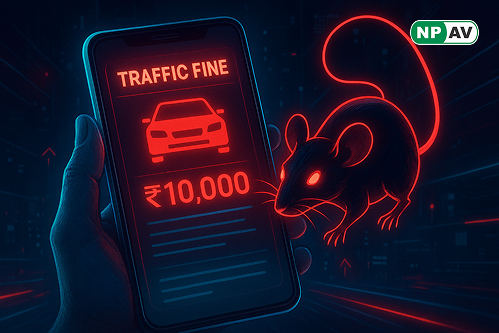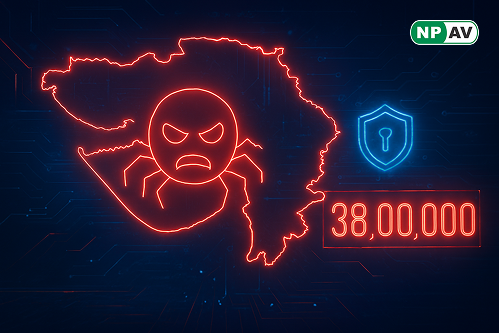Malware Alerts
-
Read moreLastPass warns of phishing emails with ZIP files dropping malware for keylogging and data theft—enable MFA, use antivirus, and verify sources to protect against these sneaky attacks.
-
Read moreUNC5142 exploits WordPress via BNB Smart Chain to spread stealers like Atomic—learn to update sites, use antivirus, and detect anomalies to protect against these evolving cyber attacks.
-
Posted: October 14, 2025Views: 45Read moreKandji uncovers a September 2025 campaign where attackers clone Homebrew sites to inject malware like Odyssey Stealer via clipboard tricks—exploit C2 servers and bypass trust; mitigate by verifying sources and using endpoint monitoring.
-
Read moreIndian scammers use WhatsApp fake ticket alerts to push RAT-infected mParivahan apps, stealing OTPs, spying via camera, and draining banks. Download from official stores, update OS, use antivirus—report to 1930 if hit to stay safe.
-
Read moreVampire Bot spyware targets job seekers via deceptive ZIP attachments in recruiter emails, stealing screenshots and data. Linked to BatShadow hackers, it evades detection—stay safe by verifying offers and using EDR tools to avoid digital traps.
-
Read moreOpenAI's October 2025 report reveals bans on ChatGPT accounts linked to PRC-affiliated groups like UNKDROPPITCH, who leveraged AI to debug malware (GOVERSHELL, HealthKick), craft targeted phishing, and build surveillance tools—disrupting 40+ networks; models block direct threats but highlight efficiency risks in cyber ops.
-
Read moreSucuri uncovers stealthy PHP code injections in WordPress theme files (functions.php) exploiting weak permissions and outdated plugins to fetch obfuscated JS from brazilc[.]com, enabling pop-ups, redirects, and Cloudflare-mimicking iframes—update themes, tighten permissions, and monitor scripts to secure sites.
-
Posted: October 08, 2025Views: 28Read moreMicrosoft alerts on cybercriminals and state actors abusing Teams' messaging, calls, and sharing for full attack lifecycle—from reconnaissance with TeamsEnum to exfiltration via GraphRunner and extortion by Octo Tempest. Harden identities, monitor anomalies, and train users to mitigate.
-
Posted: October 08, 2025Views: 22Read moreGujarat reports over 38 lakh malware incidents via malicious apps, phishing, and unpatched software, targeting outdated devices for data theft and ransomware. Safeguard with prompt updates, trusted antivirus, 2FA, official app stores, and offline backups to stay protected.
-
Read moreTrend Micro uncovers SORVEPOTEL, a worm-like malware exploiting WhatsApp for fast propagation on Windows systems in Brazil—phishing ZIPs lead to account bans and enterprise hits in government, tech sectors. Detect and block early to avoid spam floods.















